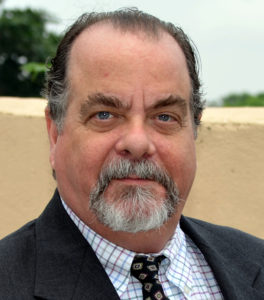I am chagrined by the Baptist News Global report that you used your position with the Baptist World Alliance to dismiss T.J. Williams-Hauger from his participation with two BWA commissions: Interfaith Commission and the Racial Justice Commission.
My chagrin rests on two levels: History and ethics.
Even casual participating members of the BWA — and especially those who have been tapped for leadership for various commissions and elected positions of leadership — are keenly aware the BWA is built upon the foundation of Baptist forebears who left England in the 17th century because of religious persecution.

Richard Wilson
Remember that our designation as Baptists carries the sting of violence from the 17th century when the followers of Smyth and Helwys were tortured and executed by the cruel means of being baptized to death. Yes, they were bound in dunking chairs and repeatedly dunked until they died.
Over the intervening centuries, faithful Baptists became champions for the marginalized and oppressed. Those marginalized and oppressed included the poor, racial minorities and women. In this generation we should include those marginalized and oppressed because of gender orientation.
Perhaps you recall the controversy from 2004 when the Southern Baptist Convention attempted to strong-arm the BWA when we refused to chastise Billy Kim because Korean Baptists were affirming the leadership of women.
Those were interesting days. The BWA resisted the SBC strong arm tactics and came out stronger. The SBC withdrew financial support, and the BWA continued to thrive.
In those days I was in the midst of a decades-long relationship with the BWA, including participation and leadership in commissions.
My ethical concern is more pointed.
I was pleased to be part of the Commission on Christian Ethics and the Theological Education Workgroup. Often I read papers for the ethics commission. Some of my papers have been included in BWA publications.
In 2009, the BWA met in Ede and Amsterdam, Netherlands. The chair of the commission, Ross Clifford, invited me to deliver a paper on the church and homosexuality. I was happy to do it.
In passing, I note the venue for the paper had to be changed because of the interest it generated.
The paper I presented was neither polemical nor combative. It was interrogative. I did not raise the question, “What would Jesus do” but I did attempt to explore pastoral — rather than dogmatic — nuances in the contemporary context.
Since then, there have been many helpful books published along the same lines. I recommend that you begin with David Gushee’s Changing Our Mind. Gushee confesses his conversion from being rigidly anti-homosexual to becoming accepting and affirming.
I hope you reconsider the strident response you made to Williams-Hauger. Your response, as reported by BNG, appears to infringe upon the integrity of the local church (that embraces Williams-Hauger) and, by implication, the American Baptist Churches USA.
What I find more troubling is the language you reportedly used as a way to strong arm Williams-Hauger to quietly resign from his elected BWA positions. BNG reports that you threatened him with a hunt for other “gay folks” who participate in the work of the BWA. Williams-Hauger told BNG you said to him: “If you don’t keep this quiet, I’m going to be forced to find the other gay folks.”
And, of course, along the way I hope you can be more transparent about the issue. Your refusal to respond to questions from BNG is a stunning example of intransigence.
You are, after all, a public figure who has public responsibility.
Richard Francis Wilson is emeritus professor of religion in the Columbus Roberts Department of Religion at Mercer University.
Related article:
Gay Christian man says he was kicked off BWA commissions


